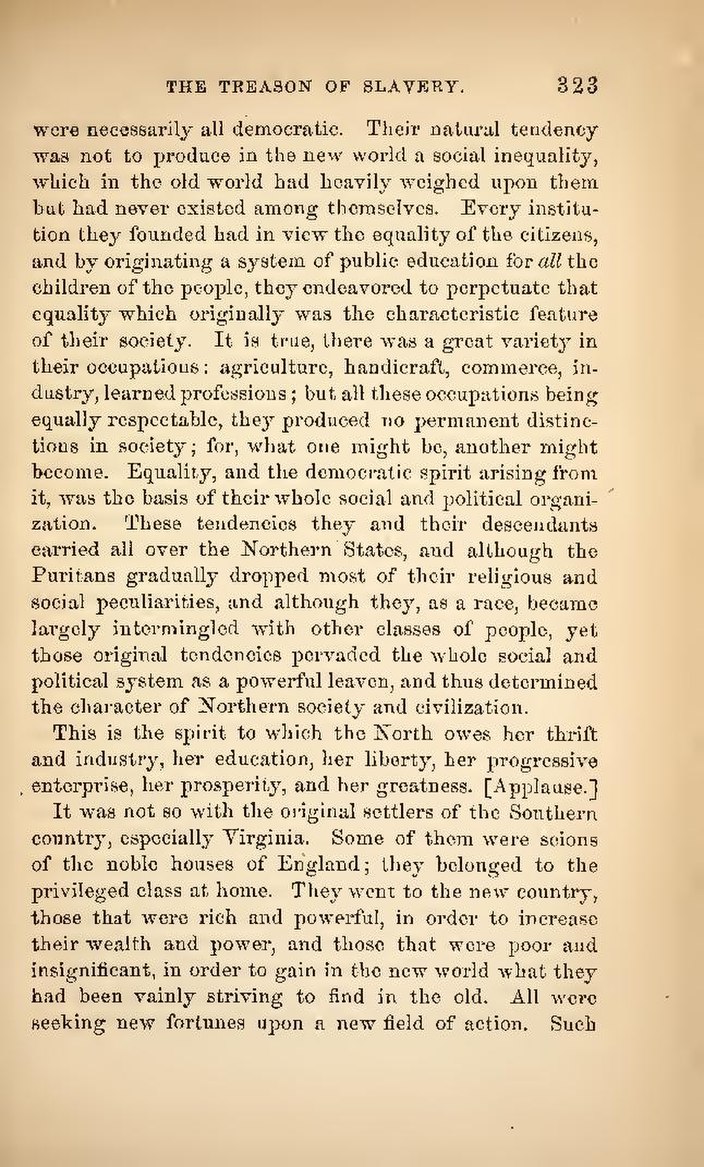were necessarily all democratic. Their natural tendency was not to produce in the new world a social inequality, which in the old world had heavily weighed upon them but had never existed among themselves. Every institution they founded had in view the equality of the citizens, and by originating a system of public education for all the children of the people, they endeavored to perpetuate that equality which originally was the characteristic feature of their society. It is true, there was a great variety in their occupations: agriculture, handicraft, commerce, industry, learned professions; but all these occupations being equally respectable, they produced no permanent distinctions in society; for, what one might be, another might become. Equality, and the democratic spirit arising from it, was the basis of their whole social and political organization. These tendencies they and their descendants carried all over the Northern States, and although the Puritans gradually dropped most of their religious and social peculiarities, and although they, as a race, became largely intermingled with other classes of people, yet those original tendencies pervaded the whole social and political system as a powerful leaven, and thus determined the character of Northern society and civilization.
This is the spirit to which the North owes her thrift and industry, her education, her liberty, her progressive enterprise, her prosperity, and her greatness. [Applause.]
It was not so with the original settlers of the Southern country, especially Virginia. Some of them were scions of the noble houses of England; they belonged to the privileged class at home. They went to the new country, those that were rich and powerful, in order to increase their wealth and power, and those that were poor and insignificant, in order to gain in the new world what they had been vainly striving to find in the old. All were seeking new fortunes upon a new field of action. Such
